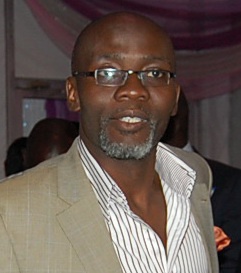The Executive Director of the Danquah Institute, Gabby Asare Otchere Darko, has expressed surprise over why up to date the role of “the Inter-party Advisory Committee” (IPAC) is not regulated by legislation.
Speaking on JoyNews Current Affairs program PM Express, Mr. Otchere-Darko said it is long overdue for the enactment of an appropriate law to formalize IPAC’s role in the electoral process.
He said he was surprised the constitutional review committee report did not make any comment about the tenure of office and appointment process of the head of the electoral commission.
He also questioned why Ministers of State and Supreme Court Justices are vetted by parliament, but the Chairman of the Electoral Commission is not.
At a symposium organized by the pro-NPP Think tank to critique the Supreme Court’s judgment of the election petition, Gabby Otchere Darko, who was a speaker, proposed a number of reforms aimed at improving the Electoral Laws of Ghana ahead of the 2016 elections and subsequent elections.
He said at the symposium that, there is an urgent need for a constitutional review with regards to the appointment process, the tenure of appointment of officers, the composition of its membership, and the accountability mechanisms of the Electoral Commission.
He told Host Nana Ansah Kwao IV that a new company must be employed to clean up the Biometric Voters Register as the Supreme Court hearing of the election petition had revealed a multiplicity of entries in the register.
On the strengthening of IPAC, he said a law to formalize its role in line with the constitutional independence of the Electoral Commission, will be the surest way to go. The setting up of District and Regional Inter Party Advisory Committees, according to Gabby Otchere-Darko, would be an effective way of strengthening the role of IPAC at the grassroots level.
He added that electoral officers or temporary Electoral Commission staff should be recruited at least more than a month before the Election Day; and that recruitment of Returning officers, Presiding Officers and other officials should be through a transparent process.
The vacancies, according to Gabby, must be advertised on local/community radio stations and national newspapers, internet and TV, at least two weeks ahead of recruitment, and party representatives must be allowed to observe the recruitment process.
Politics of Sunday, 6 October 2013
Source: joyonline
IPAC must be regulated by law - Otchere Darko

Entertainment











